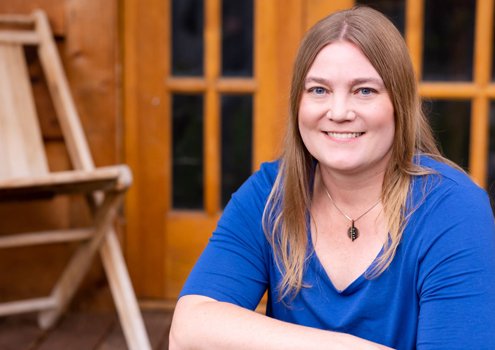Reading time: About 2 minutes
Melissa Sevigny says no one — apart from the writer — should be able to dictate how or when anyone can write….
Melissa L. Sevigny is a science writer and poet, living in Flagstaff, Arizona. She is author of Brave the Wild River, winner of a National Outdoor Book Award and Reading the West award. She also wrote Mythical River and Under Desert Skies. She’s worked as a science communicator in the fields of space exploration, water policy, and sustainable agriculture. Asteroid 28976 Sevigny is named in her honor. Learn more about her on her website.
I was excited to talk to Melissa about how she approaches writing.
Q. Roughly how much time do you spend writing every day?
I don’t write every day—at least, not the writing I do for myself. I work full time as a journalist, but I have passion projects (books, long-form articles, poetry) that I work only on the weekends. My usual pattern is to write on Saturdays, and I write for as long as the writing is working—anywhere from two hours to ten.
Q. What’s a simple activity or habit that makes you a better writer?
Walks. This is terribly basic, but when I’m stuck or tired or working through a problem, a walk can work miracles — especially out in the beautiful ponderosa pine forest behind my house.
Q. What interferes with your writing?
Exhaustion. A lack of time. A lack of energy. In addition to the aforementioned full-time job — which is frequently demanding and draining — I have a chronic autoimmune disorder. I have to be patient with myself, and let things unfold in their own time.
Q. How do you persuade yourself to sit down to write on days when you really, really DON’T feel like doing it?
The Saturday pattern helps a lot. If it’s Saturday, I write. It doesn’t matter if I feel like writing or not. If I wait to be in a writing mood, I’ll never get anything done. It also helps to make writing the very first thing I do when I wake up—before a shower, before coffee, even. When I’m still partly in a dreamspace, the critical side of me is quieter, and I can be more creative and experimental. Oh, and I have a particular kind of chai tea I like to drink on writing days.
Q. Is there a particular motto or saying that you’ve found helpful for writing?
I have a short list of inspirational quotes that I keep at my desk. One is from Cheryl Strayed: “I know it’s hard to write, darling. But it’s harder not to.” And another from Audre Lorde: “I have come to believe over and over again that what is most important to me must be spoken, made verbal and shared, even at the risk of having it bruised and misunderstood.”
Q. Which stage of the writing process do you enjoy the most: researching, writing or editing/rewriting and why?
I actually really like the editing and rewriting process. The hard part is done, and now it’s time to play with language, to read it out loud, to try out a new shape in the jigsaw, to work on getting each word exactly right.
Q. What’s one of the best books you’ve read (either fiction or non) in the last five years?
So hard to choose! Let’s see—I was blown away by Shelley Read’s Go as a River, which is a novel set in a real-life Colorado town that was drowned by a reservoir. It’s haunting, heart-full and heartbreaking at the same time.
Q. What book are you reading right now?
I’m savoring a collection of short science essays and science-inspired poems, The Universe in Verse, by Maria Popova.
Q. What do you think is the biggest misperception that new writers have about the act of writing?
Let’s circle back to the first question: a lot of writers are told that “real writers write every day.” Maybe that works for you, maybe it doesn’t. No one else can dictate how or when you should write.


